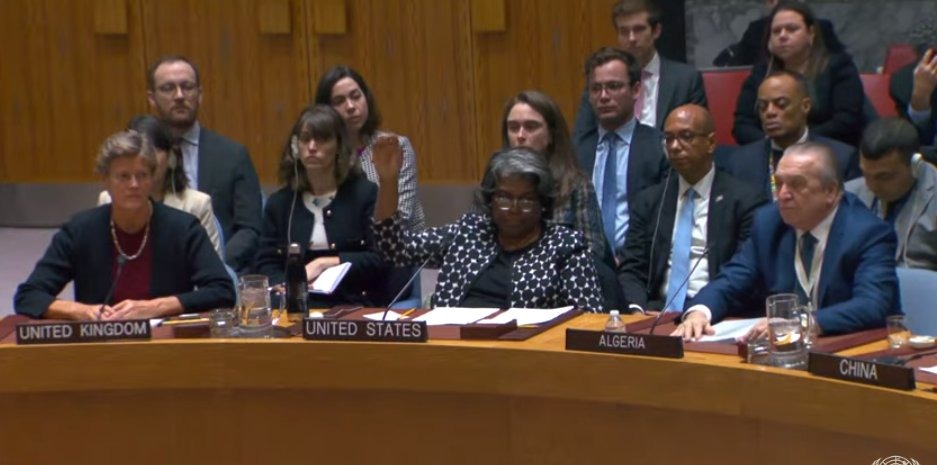
Listen to this note:
For the third time, the United States vetoed a resolution of the UN Security Council presented by Algeria which will put an end to the war in Gaza, in which “an immediate ceasefire” was requested.
With 13 votes in favor, one abstention from the United Kingdom and one vote against from the United States, the resolution was not favorable to the United States.
